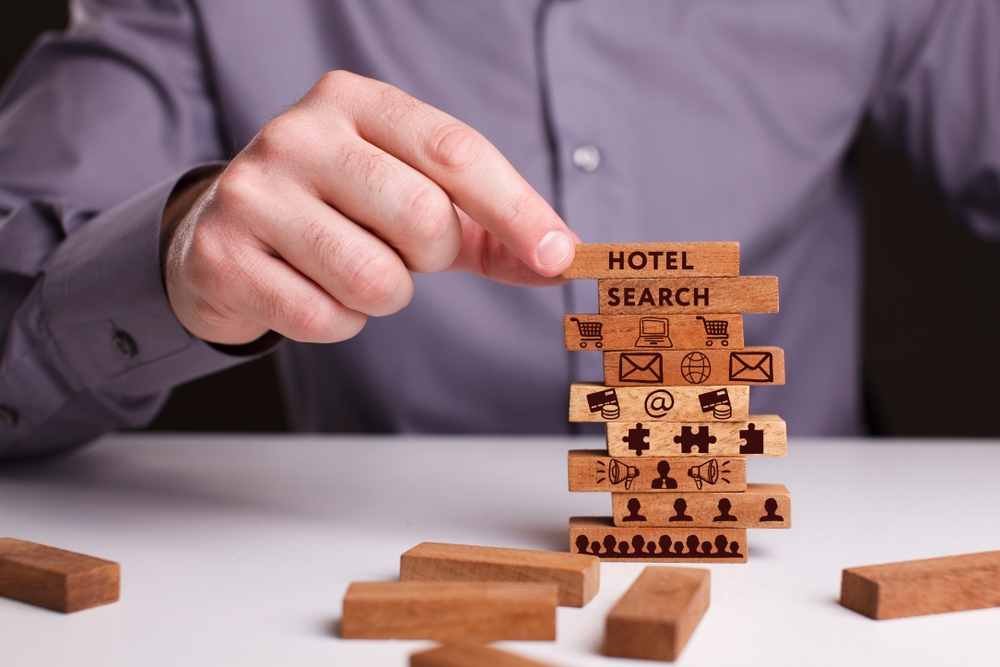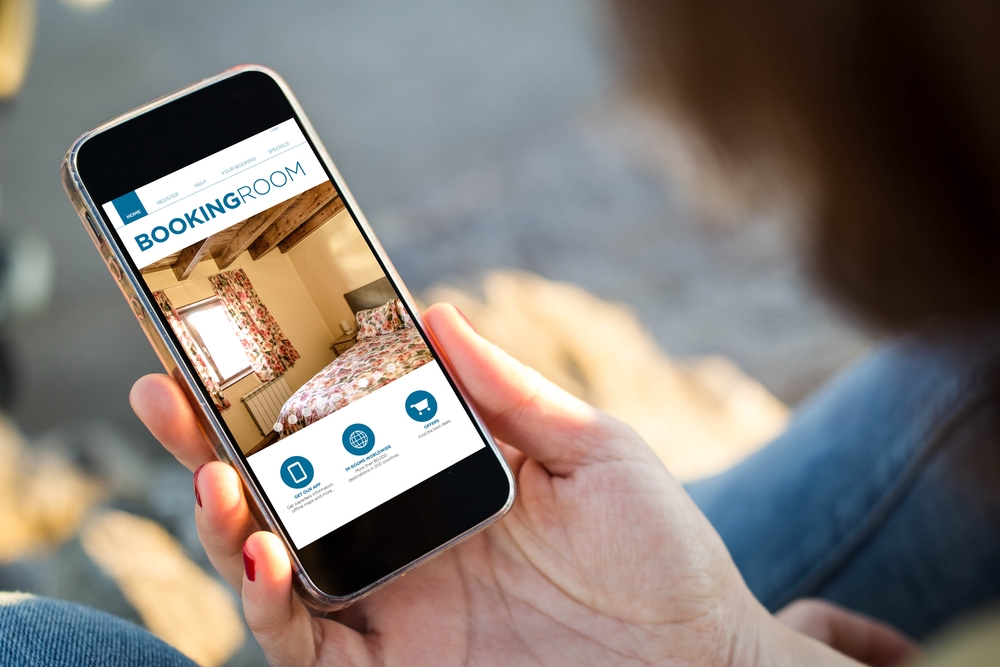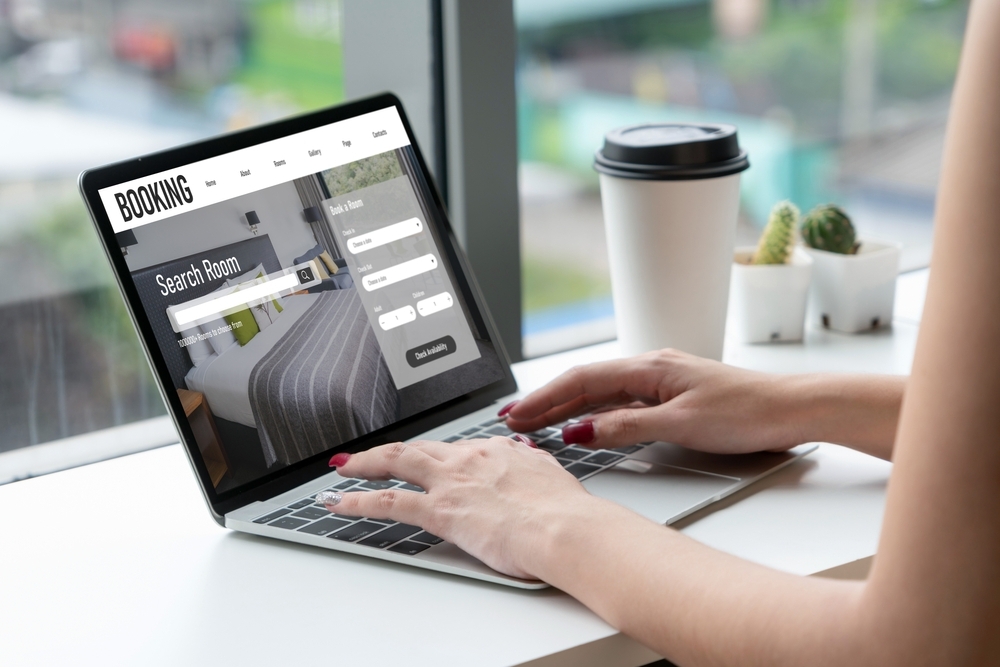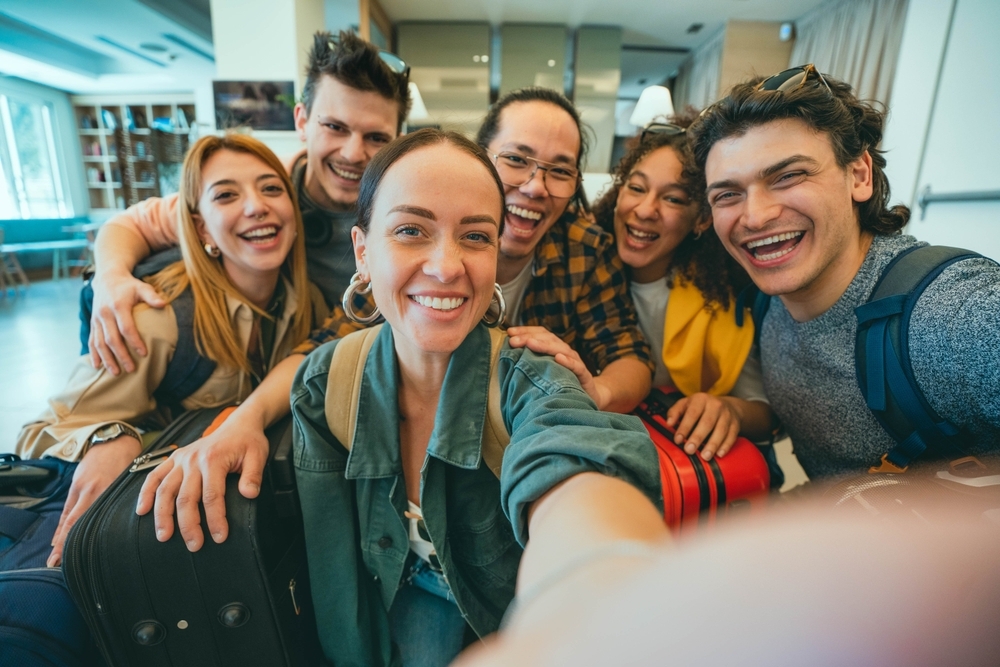Top Strategies for Effective Hotel Marketing in the Digital Age
By Nikita Nielsen · 25. April 2024
How can you effectively and successfully promote your hotel?
In today’s hospitality industry, standing out means blending innovation, strategy, and digital know-how.
Hotel marketing serves as your guide, shaping a unique brand identity and boosting bookings.
Dive into this article for insights into strategies and new trends that are shaping hotel marketing right now.
Get ready to boost🔝 your online presence, create engaging content, and build strong guest relationships!
Key Takeaways
- Hotels should highlight their unique selling propositions, set clear marketing objectives, and stay up to date with industry trends.
- Hotels need a strong online presence, with a user-friendly website, strategic SEO, and active social media interactions.
- Content marketing is key, where engaging content, user-generated content, and meaningful storytelling help hotels connect with potential guests.
Crafting a Robust Hotel Marketing Strategy
 hotel marketing strategy
hotel marketing strategy
A strong hotel marketing📣 strategy is vital for your hotel’s success in the competitive hospitality industry.
It’s like a guiding roadmap, steering your marketing efforts to meet your hotel’s goals.
It’s essential to explore various marketing strategies to find the best fit for your establishment.
It’s about:
- Knowing your audience
- Understanding what makes your hotel unique
- Using those unique selling points to connect with your target audience
- Standing out from the competition
What makes up an effective hotel marketing strategy? It boils down to three key elements: defining your hotel’s unique selling proposition (USP), setting clear marketing objectives, and aligning your strategy with industry trends.
Highlighting Your Hotel’s Unique Selling Point (USP)
Your USP is what sets your hotel apart from your competitors. This could be a unique feature or service that distinguishes your business from others.
It could be anything from a rooftop pool, a Michelin-starred restaurant, or a stunning view of the city skyline.
The key🗝️ here is to identify what makes your hotel unique and then communicate that uniqueness to your audience in an appealing way.
But defining your USP is not just about listing out the features of your hotel. It’s about understanding your hotel, your target market, and your staff.
It’s about crafting a compelling narrative that showcases your hotel’s unique characteristics and resonates with your target audience.
After all, people don’t buy products; they buy stories, emotions, and experiences.
Setting Clear Marketing Objectives
After defining your USP, it’s essential to establish clear marketing objectives.
What do you want to accomplish with your marketing goals? Boost revenue? Widen audience reach? Improve brand recognition? Whatever your goal is, it’s important that it’s SMART – Specific, Measurable, Achievable, Relevant, and Time-bound.
Having clear marketing objectives not only guides your marketing efforts but also lets you see how well they’re working.
Keep an eye on things like website visits, sign-ups, and conversions to measure how successful your marketing is.
Aligning Strategy with Industry Trends
The hospitality industry is ever-evolving, and to stay ahead of the curve, you need to stay updated on market trends and adjust your marketing strategies accordingly.
Staying aware of evolving trends like the rise of eco-tourism, the growing influence of social media influencers, or the increasing demand for personalised experiences, and integrating them into your strategy can provide a competitive edge.
Tools like Google Alerts🔔 can help you stay on top of industry announcements, competitor news, and guest reviews.
Enhancing Online Presence and Digital Footprint
 hotel mobile app for booking and check out
hotel mobile app for booking and check out
In today’s digital age, your hotel’s online presence is as important as its physical one.
After all, the first interaction most of your potential guests will have with your hotel is likely to be online – either on your website, on a social media platform, or on a travel review site.
So, ensuring that your hotel’s online presence is strong and in line with your brand identity is key.
A strong online presence is not just about having a website or being active on social media.
It’s about optimizing your hotel’s website for user experience, using SEO to boost organic traffic, and interacting with customers on social media platforms.
Making the Hotel Website User-Friendly
 online hotel accommodation booking website
online hotel accommodation booking website
Your hotel’s website is often the first stop for potential guests. It’s where they can read all about your hotel, its amenities, and its services.
So, it’s crucial that your website not only looks great but also offers an exceptional user experience. This means having a website that’s easy to navigate, loads quickly, and is mobile-friendly.
But optimizing your hotel website for user experience is not just about the technical aspects. It’s also about creating a brand identity through design elements and establishing a clear brand personality.
Whether it’s through great copy, high-quality images, or engaging videos, every element on your website should tell your hotel’s unique story and resonate with your target audience.
Leveraging SEO to Boost Organic Traffic
Search Engine Optimization (SEO) is a main component of your online marketing strategy. It’s what helps your hotel website rank🏆 higher in search engine results, making it easier for potential guests to find you.
The higher you rank, the more visible you are, and the more organic traffic you attract.
But SEO is not just about stuffing your website with relevant keywords. It’s about creating high-quality, value content that resonates with your target audience, and optimising your website structure and meta tags to make it easier for search engines to crawl and index your site.
Engaging Through Social Media Platforms
Social media is a powerful tool for hotels to connect with audiences, build loyal relationships, and maintain a consistent brand identity.
Platforms like Facebook, Instagram, and TikTok allow you to share engaging content, respond to customer queries, and showcase your hotel’s unique offerings.
But engaging through social media platforms is not just about posting pictures about your hotel.
It’s important to understand your audience, so you can tailor your content to their preferences, and encourage them to engage with your posts.
Whether it’s through polls, contests, or user-generated content, social media platforms offer endless opportunities for hotels to connect with their audience and drive bookings.
Mastering Content Marketing for Hotels
 user generated hotel content
user generated hotel content
Whether it’s a blog post, a social media update, or an email newsletter, content marketing is a powerful tool to attract and engage potential guests.
It’s all about providing valuable, relevant, and consistent content that positions your hotel on top and drives profitable customer action.
But how do you master content marketing for hotels? It comes down to three key areas: creating compelling and shareable content, utilising user-generated content, and leveraging storytelling to connect with potential guests.
Creating Engaging and Shareable Content
Creating engaging and shareable content is the first step towards mastering content marketing.
It’s about producing content that not only resonates with your target audience but also makes them want to share it with their network.
This could be a blog post about the local attractions, a captivating video tour of your hotel, or a helpful guide on local festivals.
But creating content is not just about the content itself; it’s also about the format. From blog posts and videos to infographics and newsletters, mixing content formats can help you engage with your audience in different ways and keep your content fresh and engaging.
Utilising User-Generated Content
User-generated content (UGC) is a goldmine for hotels. It’s authentic, relatable, and free!
Whether it’s a positive review on TripAdvisor, a beautiful Instagram post, or a helpful blog post, this type of content can significantly boost your hotel’s credibility and increase conversion rates.
But how do you use UGC as a part of your hotel marketing strategy? Here are some ways:
- Encourage your guests to share their experiences on social media and tag your hotel in their posts.
- Showcase these posts on your hotel’s social media platforms or website.
- Recognize and appreciate your guests for sharing their experiences and helping you promote your hotel.
Storytelling to Connect with Potential Guests
Storytelling is a powerful tool to connect with potential guests. It’s about sharing your hotel’s unique story and local experiences to create emotional connections with your guests.
Every hotel has a story to tell, whether it’s about its foundation, the inspiration behind its decor, or the experiences of the staff.
But storytelling is not just about your hotel. It’s also about your local community. By highlighting local experiences such as guided tours, culinary adventures, or creative workshops, you can give your potential guests a taste of the local culture and enhance your hotel’s story.
Targeted Email Marketing Campaigns
 hotel guest working on her laptop computer and drinking coffee
hotel guest working on her laptop computer and drinking coffee
Email marketing📧 is a tried and tested tool in hotel marketing. It’s personal, direct, and highly effective.
Email marketing can be used in various ways, such as:
- Sending promotional emails offering special discounts
- Sharing newsletters with the latest updates
- Sending personalised emails acknowledging a guest’s special occasion
These strategies serve as an effective way to encourage guests, create relationships, promote offers, and increase bookings.
But what’s the best strategy for targeted email marketing campaigns? It’s about personalising your emails based on your guest’s preferences and offering value.
It can be a special discount, a helpful tip, or a heartfelt thank you note, every email should make your guests feel valued and appreciated.
Crafting Effective Email Campaigns
Creating effective email campaigns is an art. It’s about capturing your guests’ attention, engaging them with your content, and encouraging them to take action.
This can effectively be done through a catchy subject line, a call-to-action, or a personalised message.
Every element of your email campaign needs to be carefully thought out to achieve your marketing objectives.
But effective email campaigns are not just about the content – timing also plays a very important role.
By analyzing your email performance metrics such as open rates, click-through rates, and conversion rates, you can fine-tune the timing and content of your emails for better results.
Collaborating with Local Businesses and Events
Collaboration is the key to success. By teaming up with local businesses and organisations, you can offer unique experiences, promote your hotel, and give support to your local community.
Collaborating with local places like restaurants and museums, and sponsoring local events can lead to many great opportunities for your hotel.
So, how can forming partnerships with local businesses enhance your hotel’s marketing efforts?
Forming Alliances with Local Businesses
Forming strategic alliances with local businesses is a win-win situation. It allows you to offer unique experiences to your guests, but also to promote local businesses.
Whether it’s a joint promotion with a local restaurant, a partnership with a local museum, or a collaboration with a local event, these collaborations can enhance your hotel’s value proposition and set you apart from your competitors. It’s an amazing opportunity to stand out!
By forming strategic alliances, you can also support your local community. Sponsoring local events, supporting local causes, or simply promoting local businesses on your hotel’s platforms allows you to build strong relationships with your local community and enhance your hotel’s reputation.
Measuring and Analysing Hotel Marketing Success
In hotel marketing, improvement follows measurement. By measuring and analysing your marketing efforts, you can ensure that your campaigns are effective and that your strategies are working.
Tracking key performance indicators (KPIs) such as website visits, social media engagement, or email open rates is key for measuring your hotel marketing efforts.
But how do you establish KPIs that can help you measure and analyse your marketing success?
Establishing Key Performance Indicators (KPIs)
Key Performance Indicators (KPIs) guide your marketing efforts and help you stay on track. By tracking KPIs, you can measure your performance and success, and make informed decisions.
Whether it’s website visits or email open rates, every KPI offers valuable insights into your marketing performance.
But establishing KPIs is also about aligning these metrics with your hotel’s goals.
Whether your goal is to increase direct bookings, improve guest satisfaction, or boost🚀 brand awareness, your KPIs need to reflect these goals. After all, what gets measured gets improved!
Building and Nurturing Customer Loyalty Programs
Customer loyalty programs not only encourage repeat visits but also foster long-term relationships with guests.
These programs, offering exclusive discounts, rewarding frequent stays, or recognizing special occasions, show appreciation for your guests, encouraging them to come back for another stay.
But building and nurturing customer loyalty programs is not just about rewarding repeat visits. It’s also about personalising guest experiences.
Let’s have a look at how designing rewarding loyalty programs and personalising guest experiences can enhance your customer loyalty efforts.
Designing Rewarding Loyalty Programs
Designing rewarding loyalty programs is an art. It’s about understanding your guests and rewarding them in a way that makes them feel valued.
Whether it’s a free room upgrade, a special discount on their birthday, or a complimentary breakfast, every reward should make your guests feel special.
By taking into account your guests’ preferences and special occasions, you can personalise your rewards, making your loyalty program personal and unique.
Personalising Guest Experiences
The key to customer loyalty lies in personalising guest experiences and making them unique. It’s all about making your guests feel special, recognized, and appreciated.
Whether it’s greeting your guests by name, remembering their room preferences, or celebrating their special occasions, every little detail can make a big difference in enhancing your guests’ experiences.
But personalising guest experiences is not just about the details. It’s also about the connections.
By engaging with guests on a personal level, understanding their needs, and going the extra mile to meet those needs, you can build strong connections with your guests and cultivate customer loyalty.
Summary
In a nutshell, hotel marketing in the digital age is always shifting.
From having a solid marketing plan to enhancing your online presence to nailing content marketing and email campaigns, every aspect of your marketing efforts plays a crucial role in the success of your hotel.
By keeping up with industry trends, embracing new technology, and building customer loyalty programs, you can stay on top and thrive in the industry.
Frequently Asked Questions
What is a Unique Selling Proposition (USP) in hotel marketing?
Your hotel’s Unique Selling Point (USP) is the special feature that sets it apart from other hotels, helping it to stand out in the market.
How can SEO boost organic traffic to my hotel website?
Improving your hotel website’s SEO can enhance its visibility in SERP, ultimately attracting more organic traffic and potential guests. Try optimizing your website to enhance its ranking and accessibility.
How can I utilise user-generated content in my hotel marketing strategy?
You can utilise user-generated content in your hotel marketing strategy by encouraging guests to share their experiences on social media and showcasing these posts on your hotel’s social media platforms or website.
What are the benefits of customer loyalty programs in hotel marketing?
Customer loyalty programs foster long-term relationships with guests and make them feel valued, encouraging guests to come back and stay at your hotel.

